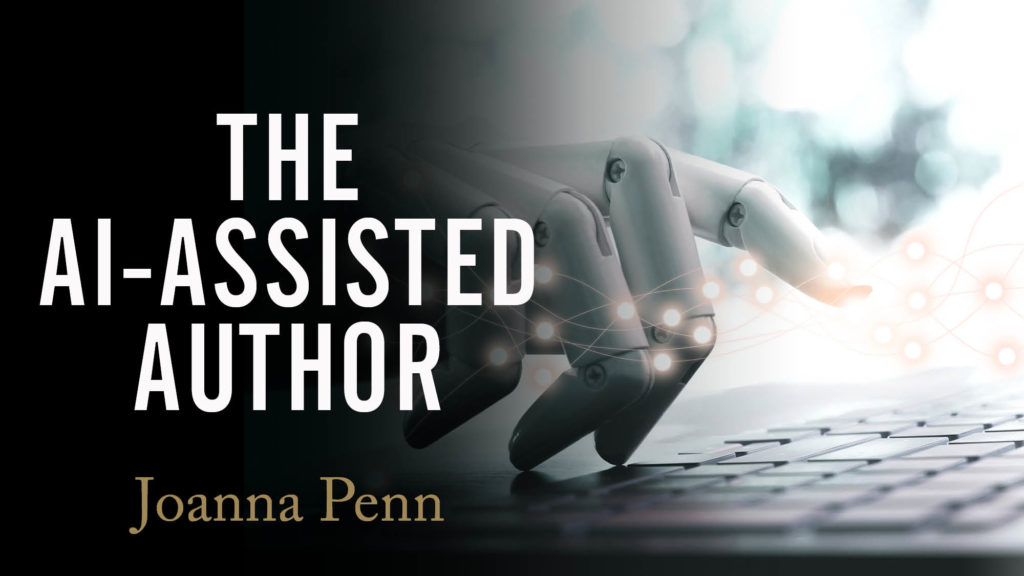How AI Can Assist in the Writing Process
The writing process can be a daunting task, especially for those who struggle with organization, creativity, and time management. Fortunately, artificial intelligence (AI) has emerged as a powerful tool to aid writers in their creative endeavors. The question on many minds is, can AI help you write a book? The answer is a resounding yes. AI can assist in various aspects of the writing process, from research and outlining to content generation and editing.
One of the primary benefits of using AI in book writing is increased efficiency. AI-powered tools can help writers conduct research, organize their thoughts, and even generate content. For instance, AI can analyze vast amounts of data, identify patterns, and provide insights that can inform the writing process. This can save writers a significant amount of time and effort, allowing them to focus on the creative aspects of writing.
AI can also enhance creativity and improve organization. AI-powered writing tools can suggest alternative phrases, sentences, and even paragraphs to help writers overcome writer’s block. Additionally, AI can assist in outlining and structuring the manuscript, ensuring that the narrative flows logically and coherently.
Furthermore, AI can aid in content generation, which can be a significant challenge for many writers. AI-powered language generators can produce high-quality content, including articles, blog posts, and even entire chapters. While AI-generated content may not be perfect, it can serve as a useful starting point for writers to build upon.
However, it’s essential to note that AI is not a replacement for human writers. AI can augment and enhance the writing process, but it cannot replicate the creativity, nuance, and emotional depth that human writers bring to the table. The best approach is to use AI as a tool to support and facilitate the writing process, rather than relying solely on AI-generated content.
In conclusion, AI can be a valuable asset for writers, providing assistance with research, organization, creativity, and content generation. While AI is not a panacea for all writing challenges, it can certainly help writers overcome common obstacles and produce high-quality content. As the technology continues to evolve, it will be exciting to see how AI can further support and enhance the writing process.
Understanding the Capabilities of AI Writing Tools
As the use of artificial intelligence (AI) in book writing becomes more prevalent, it’s essential to understand the capabilities of AI writing tools. These tools can be broadly categorized into three main types: language generators, writing assistants, and content suggestion platforms. Each type of tool has its unique features, strengths, and limitations, and can be used to aid in different aspects of the writing process.
Language generators, such as language translation software and text summarization tools, can generate human-like text based on a given prompt or topic. These tools use complex algorithms to analyze vast amounts of data and generate text that is often indistinguishable from that written by a human. However, language generators can struggle with nuance and context, and may not always produce text that is grammatically correct or free of errors.
Writing assistants, on the other hand, are designed to aid writers in the creative process. These tools can suggest alternative phrases, sentences, and even paragraphs to help writers overcome writer’s block or improve the clarity and coherence of their writing. Writing assistants can also provide grammar and spell checking, as well as suggestions for improving sentence structure and style.
Content suggestion platforms take a more holistic approach to AI-powered writing. These platforms use machine learning algorithms to analyze a writer’s style, tone, and voice, and provide suggestions for content that is tailored to their specific needs. Content suggestion platforms can be used to generate ideas, develop plot lines, and even create entire drafts of a manuscript.
While AI writing tools can be incredibly powerful, it’s essential to understand their limitations. AI tools are only as good as the data they are trained on, and may not always produce text that is accurate, informative, or engaging. Additionally, AI tools can struggle with nuance and context, and may not always understand the subtleties of human language.
Despite these limitations, AI writing tools can be a valuable asset for writers. By understanding the capabilities and limitations of these tools, writers can use them to augment and enhance their writing process, rather than relying solely on AI-generated content. As the technology continues to evolve, it will be exciting to see how AI writing tools can further support and enhance the writing process.
Overcoming Writer’s Block with AI-Powered Inspiration
Writer’s block is a common problem that many authors face at some point in their writing journey. It can be frustrating and debilitating, causing writers to feel stuck and unsure of how to move forward. However, with the help of artificial intelligence (AI), writers can overcome writer’s block and get their creative juices flowing again.
AI-powered tools can generate ideas, suggest plot twists, and even provide writing prompts to help writers overcome writer’s block. These tools use complex algorithms to analyze vast amounts of data and generate text that is often indistinguishable from that written by a human. By using AI-powered tools, writers can tap into a wealth of creative ideas and inspiration, helping them to overcome writer’s block and produce high-quality content.
One of the most significant benefits of using AI-powered tools to overcome writer’s block is the ability to generate new ideas and perspectives. AI tools can analyze vast amounts of data and generate text that is often fresh and original, helping writers to see their work in a new light. Additionally, AI tools can suggest plot twists and turns, helping writers to add complexity and depth to their stories.
Another benefit of using AI-powered tools to overcome writer’s block is the ability to provide writing prompts and exercises. AI tools can generate writing prompts and exercises that are tailored to a writer’s specific needs and goals, helping them to get their creative juices flowing again. By using AI-powered tools, writers can overcome writer’s block and produce high-quality content that is engaging and informative.
While AI-powered tools can be incredibly helpful in overcoming writer’s block, it’s essential to remember that they are not a replacement for human creativity and imagination. Writers should use AI-powered tools as a supplement to their own creative process, rather than relying solely on AI-generated content.
By using AI-powered tools to overcome writer’s block, writers can tap into a wealth of creative ideas and inspiration, helping them to produce high-quality content that is engaging and informative. Whether you’re a seasoned author or just starting out, AI-powered tools can help you to overcome writer’s block and achieve your writing goals.
The Role of AI in Editing and Revising Your Manuscript
Editing and revising a manuscript can be a time-consuming and labor-intensive process, but artificial intelligence (AI) can help make it more efficient and effective. AI-powered editing tools can assist with grammar and spell checking, sentence structure suggestions, and even content analysis, helping writers to improve the overall quality of their writing.
One of the most significant benefits of using AI-powered editing tools is the ability to catch errors and inconsistencies that may have been missed by human editors. AI tools can analyze vast amounts of data and identify patterns and anomalies that may not be apparent to human readers. This can help writers to produce error-free and polished manuscripts that are ready for publication.
AI-powered editing tools can also provide suggestions for improving sentence structure and style, helping writers to create clear and concise prose that engages readers. Additionally, AI tools can analyze the content of a manuscript and provide suggestions for improving its organization and flow, helping writers to create a more cohesive and compelling narrative.
Another benefit of using AI-powered editing tools is the ability to automate repetitive and time-consuming tasks, freeing up writers to focus on more creative and high-level tasks. AI tools can help writers to format their manuscripts, generate tables of contents, and even create indexes and bibliographies, saving time and effort.
While AI-powered editing tools can be incredibly helpful, it’s essential to remember that they are not a replacement for human editors. AI tools can help to identify errors and inconsistencies, but they may not always understand the nuances of human language and the context in which a manuscript is written. Therefore, it’s essential to use AI-powered editing tools in conjunction with human editors to ensure that a manuscript is thoroughly reviewed and polished.
By using AI-powered editing tools, writers can produce high-quality manuscripts that are error-free and polished, and that engage readers with clear and concise prose. Whether you’re a seasoned author or just starting out, AI-powered editing tools can help you to take your writing to the next level.
Collaborating with AI: The Future of Book Writing
The future of book writing is likely to be shaped by the increasing use of artificial intelligence (AI) in the writing process. As AI technology continues to evolve, it is likely that we will see more collaboration between humans and AI in the creation of books. This collaboration can take many forms, from using AI-powered writing tools to assist with research and organization, to working with AI algorithms to generate content and ideas.
One of the benefits of collaborating with AI in book writing is the ability to tap into the vast amounts of data and information that AI algorithms can analyze. AI can help writers to identify patterns and trends in their research, and to generate new ideas and insights that may not have been possible through human analysis alone. Additionally, AI can assist with the organization and structuring of a manuscript, helping writers to create a clear and coherent narrative.
Another benefit of collaborating with AI in book writing is the ability to automate repetitive and time-consuming tasks. AI algorithms can help writers to format their manuscripts, generate tables of contents, and even create indexes and bibliographies. This can save writers a significant amount of time and effort, allowing them to focus on the creative aspects of writing.
However, there are also potential risks and challenges associated with collaborating with AI in book writing. One of the main concerns is the potential loss of creative control and agency. As AI algorithms become more advanced, there is a risk that they may begin to dominate the writing process, leading to a loss of human creativity and originality.
Additionally, there are also concerns about the ownership and authorship of AI-generated content. As AI algorithms become more advanced, it is likely that they will be able to generate content that is indistinguishable from that written by a human. This raises questions about who owns the rights to AI-generated content, and whether it can be considered truly original.
Despite these risks and challenges, the potential benefits of collaborating with AI in book writing are significant. By working together with AI algorithms, writers can tap into the vast amounts of data and information that AI can analyze, and create new and innovative works that may not have been possible through human effort alone.
Real-World Examples of AI-Assisted Book Writing
While AI-assisted book writing is still a relatively new concept, there are already several examples of authors who have successfully used AI in their writing process. One such example is Andy Weir, author of the bestselling novel “The Martian”. Weir used AI-powered writing tools to help him generate ideas and plot twists for his book, and even used AI to assist with the editing and revising process.
Another example is James Patterson, who has used AI-powered writing tools to help him generate ideas and outlines for his books. Patterson has stated that he uses AI to help him come up with new ideas and to assist with the writing process, but that he still does the majority of the writing himself.
Naomi Novik, author of the “Temeraire” series, has also used AI-powered writing tools to help her with her writing. Novik has stated that she uses AI to help her generate ideas and to assist with the editing and revising process, and that she has found it to be a valuable tool in her writing process.
These examples demonstrate that AI-assisted book writing is not just a theoretical concept, but a real-world practice that is already being used by authors to improve their writing process. By using AI-powered writing tools, authors can tap into the vast amounts of data and information that AI can analyze, and create new and innovative works that may not have been possible through human effort alone.
It’s worth noting that AI-assisted book writing is not limited to fiction authors. Non-fiction authors, such as historians and biographers, can also use AI-powered writing tools to help them with their research and writing process. For example, AI can be used to analyze large amounts of data and identify patterns and trends that may not be apparent to human researchers.
Overall, the use of AI in book writing is a rapidly evolving field, and it will be interesting to see how it continues to develop in the future. As AI technology continues to improve, it’s likely that we will see more authors using AI-powered writing tools to assist with their writing process.
Getting Started with AI-Powered Book Writing
If you’re interested in using AI to help with your book writing, there are several steps you can take to get started. First, it’s essential to choose the right tools for your needs. There are many different AI-powered writing tools available, each with its own strengths and limitations. Some popular options include language generators, writing assistants, and content suggestion platforms.
Once you’ve chosen the right tools, it’s essential to integrate them into your writing workflow. This may involve using AI to help with research, outlining, and even generating content. It’s also important to use AI to assist with the editing and revising process, including grammar and spell checking, sentence structure suggestions, and even content analysis.
Another important step is to overcome common challenges associated with AI-powered book writing. One of the most significant challenges is the potential loss of creative control and agency. To overcome this, it’s essential to use AI as a tool to augment and enhance your writing, rather than relying solely on AI-generated content.
Additionally, it’s essential to be aware of the potential risks and challenges associated with AI-powered book writing. One of the most significant risks is the potential for AI-generated content to be inaccurate or incomplete. To overcome this, it’s essential to carefully review and edit any AI-generated content to ensure that it meets your standards.
Finally, it’s essential to be patient and persistent when using AI-powered book writing tools. AI is a rapidly evolving field, and it may take some time to get used to using AI-powered tools. However, with practice and patience, you can unlock the full potential of AI-powered book writing and take your writing to the next level.
Some popular AI-powered book writing tools include:
– Language generators: These tools use AI to generate human-like text based on a given prompt or topic.
– Writing assistants: These tools use AI to assist with the writing process, including grammar and spell checking, sentence structure suggestions, and even content analysis.
– Content suggestion platforms: These tools use AI to suggest content ideas and topics based on a given prompt or topic.
By using these tools and following the steps outlined above, you can get started with AI-powered book writing and unlock the full potential of this exciting new technology.
Conclusion: The Potential of AI to Revolutionize Book Writing
The potential of AI to revolutionize the book writing process is vast and exciting. With the ability to assist with research, outlining, and even generating content, AI can help writers to overcome common challenges and produce high-quality work. Additionally, AI-powered editing tools can help to improve the overall quality of writing, and human-AI collaboration can lead to new and innovative works.
While there are potential risks and challenges associated with AI-powered book writing, the benefits far outweigh the drawbacks. By using AI-powered writing tools, writers can tap into the vast amounts of data and information that AI can analyze, and create new and innovative works that may not have been possible through human effort alone.
As the technology continues to evolve, it’s likely that we will see even more exciting developments in the field of AI-powered book writing. From language generators to writing assistants, the possibilities are endless, and the potential for AI to revolutionize the book writing process is vast.
So, can AI help you write a book? The answer is a resounding yes. With the right tools and a willingness to learn, writers can unlock the full potential of AI-powered book writing and take their writing to the next level. Whether you’re a seasoned author or just starting out, AI-powered book writing is an exciting and rapidly evolving field that is definitely worth exploring.
In conclusion, the potential of AI to revolutionize the book writing process is vast and exciting. With its ability to assist with research, outlining, and even generating content, AI can help writers to overcome common challenges and produce high-quality work. By using AI-powered writing tools, writers can tap into the vast amounts of data and information that AI can analyze, and create new and innovative works that may not have been possible through human effort alone.



/Tips-for-proofreading-your-paper-1--56a4b8e45f9b58b7d0d885e2.jpg)



